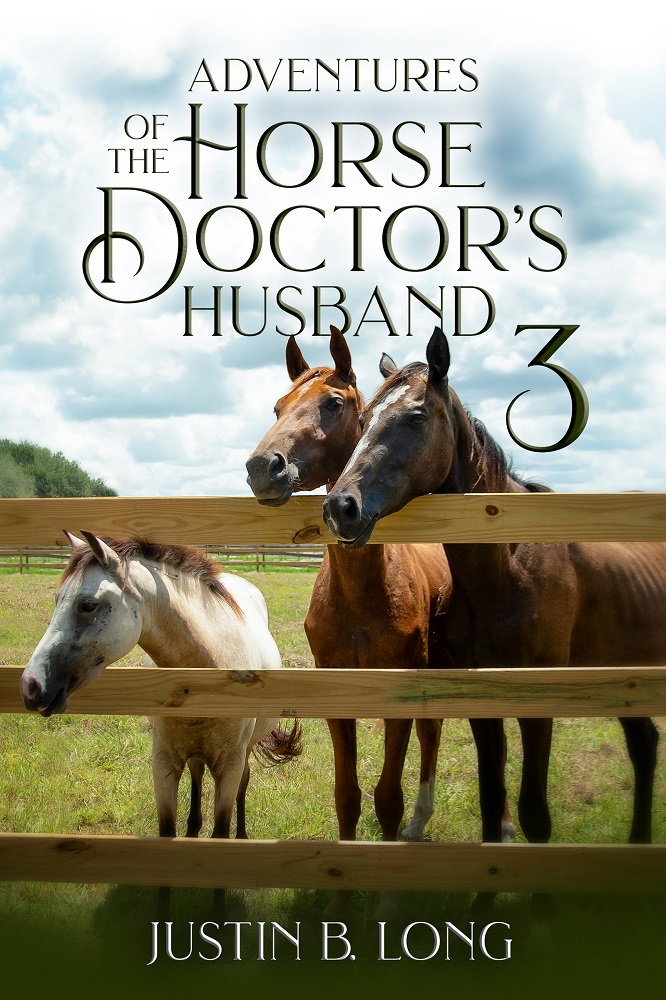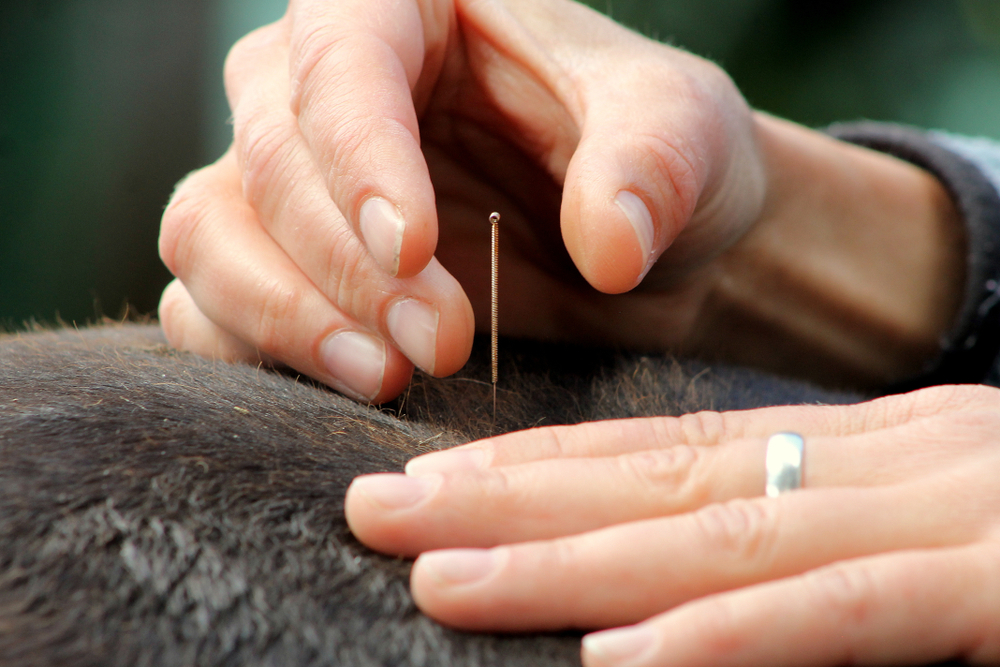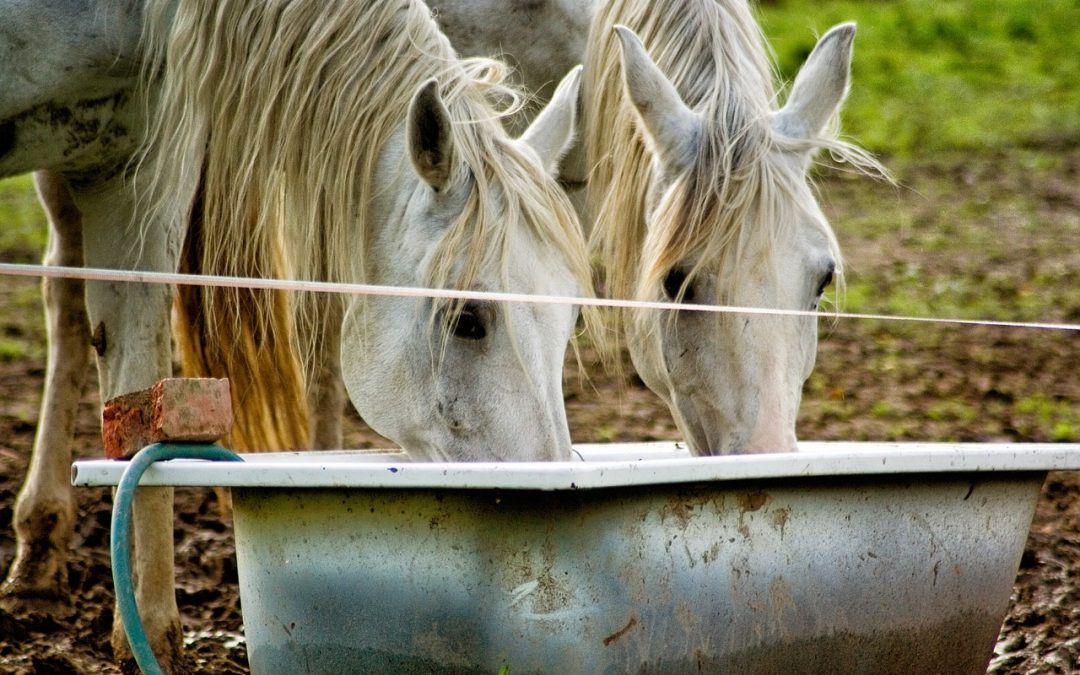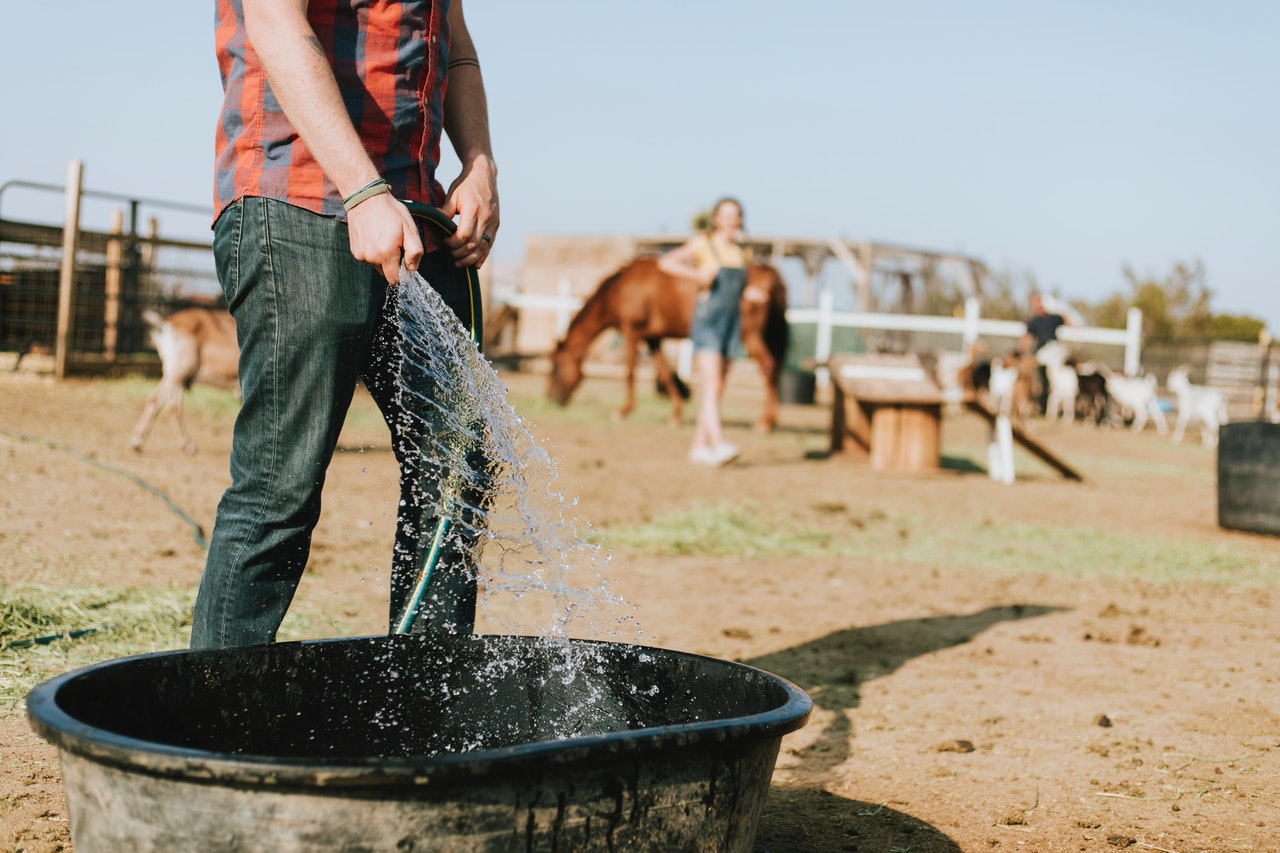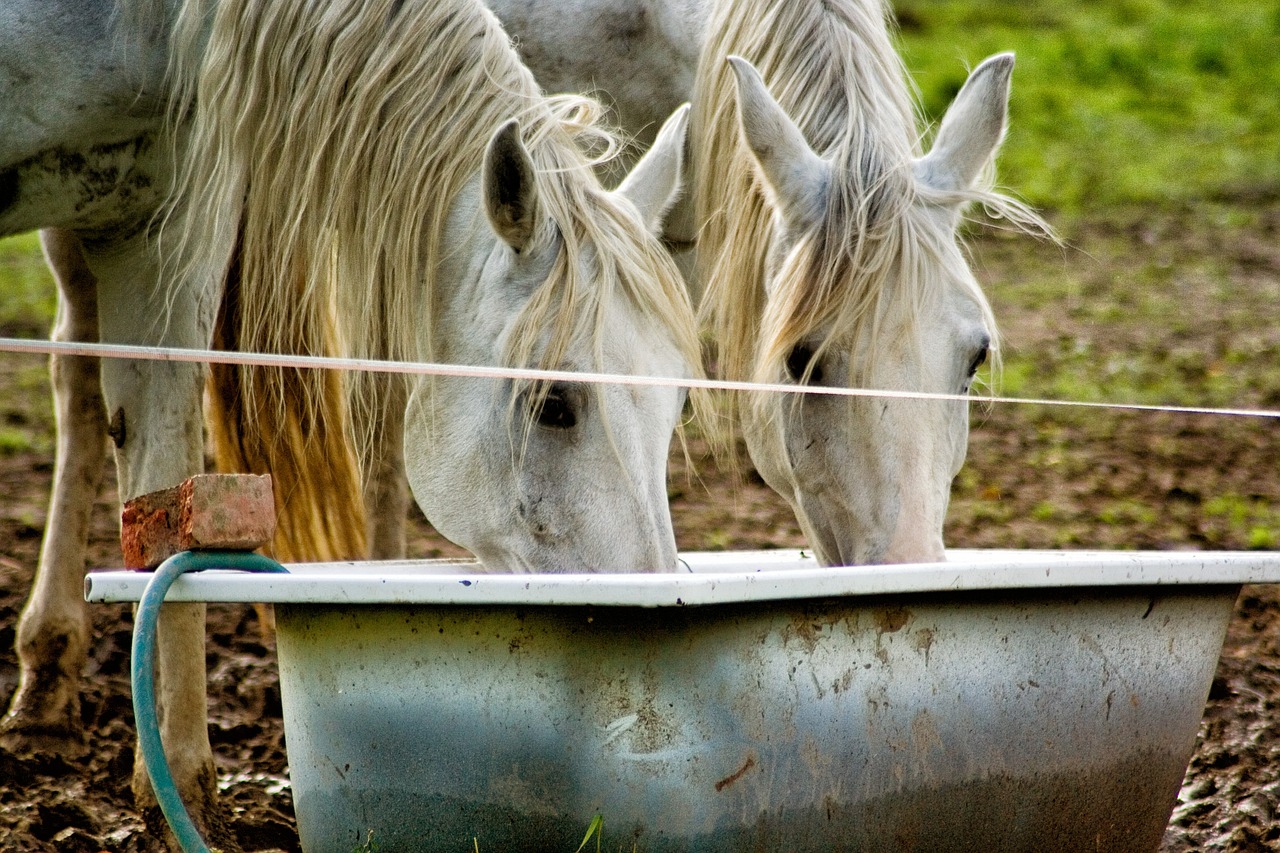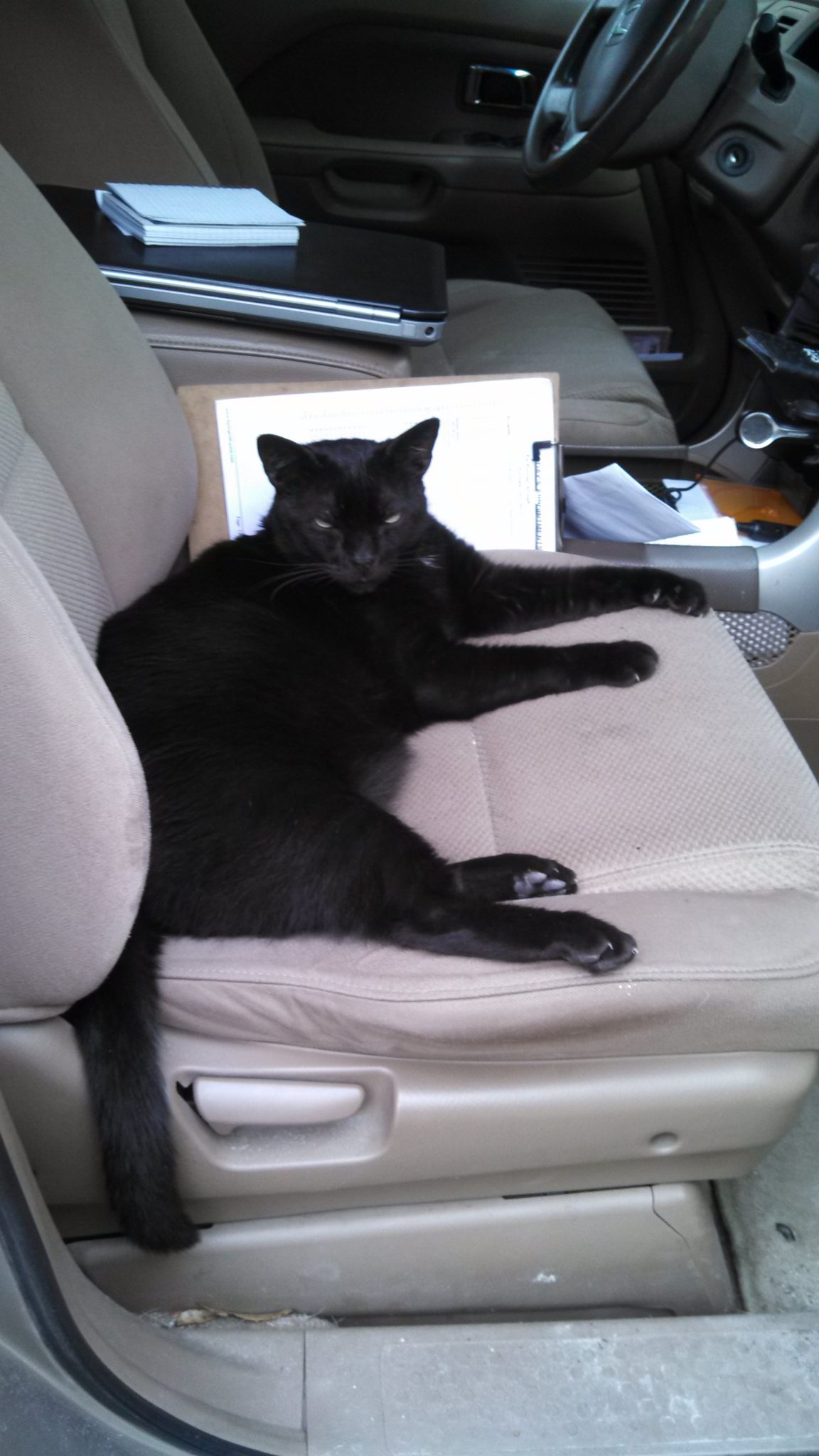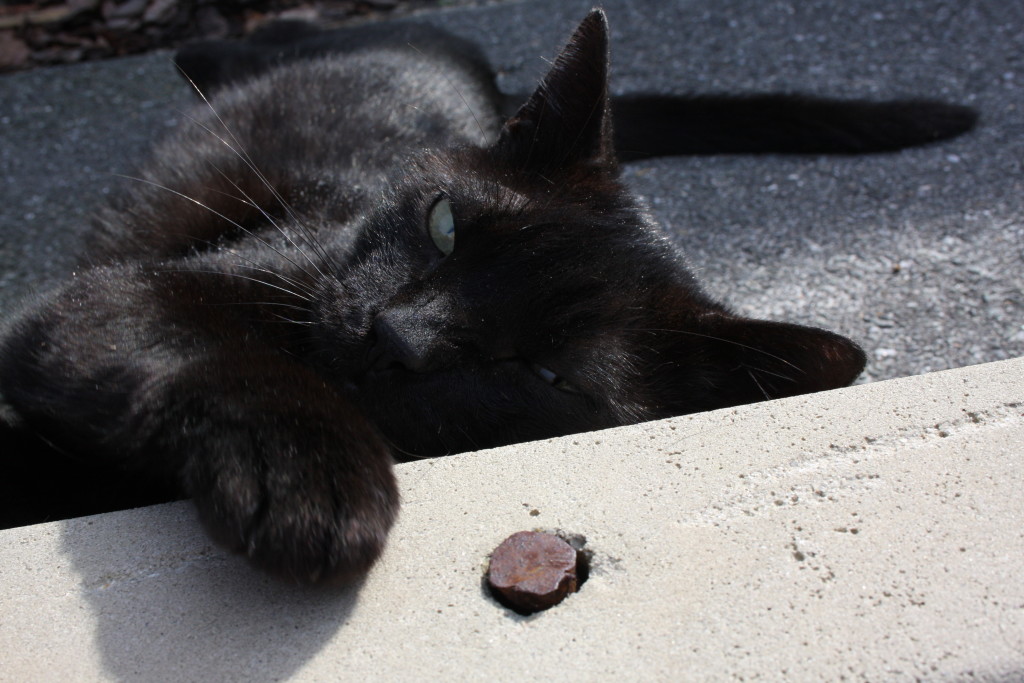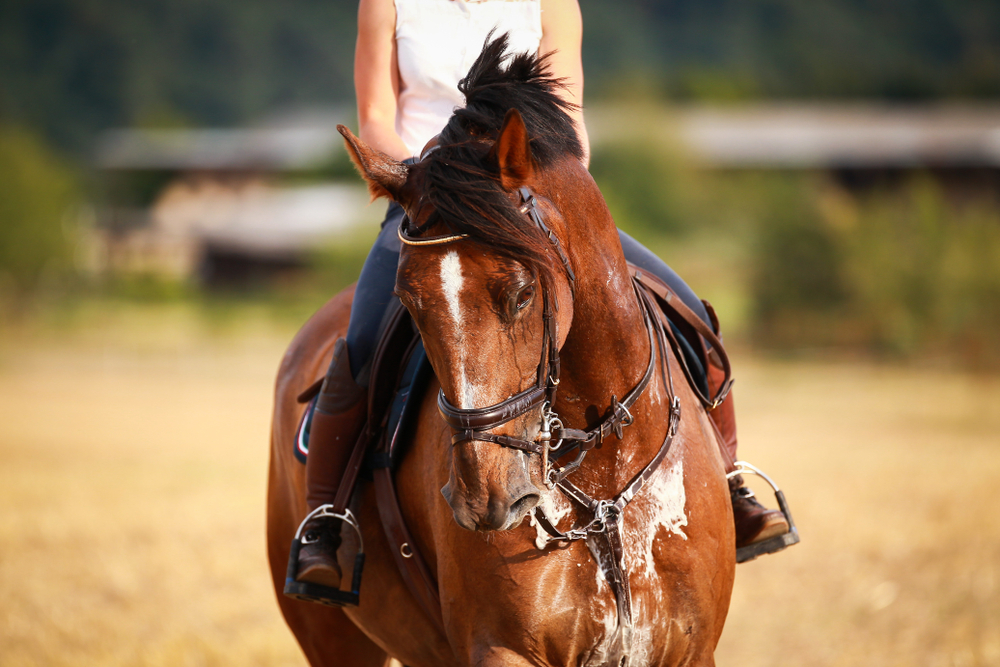
Tackling Anhidrosis in Nonsweaters
Whinny’s Wisdoms

Hello one and all, welcome back to another thrilling set of wisdoms by yours truly! Mice suffer from heat stress at temperatures above 85F so you could say I’ve been in a constant state of stress for the last few months. I don’t sweat naturally, but I can’t imagine not being able to pant to dissipate my heat. Our equine friends rely on sweating to cool themselves off, but sometimes they seem to lose that ability, and that is nothing but stress to the horses, their owners, and their doctors!
Normal horses can and do produce twice as much sweat per square inch of skin than you humans, and that can equate to 5-8 GALLONS of sweat per day in very hot weather or with moderate exercise. Have you noticed that your horse’s sweat often looks white and frothy? They have unique apocrine sweat glands that make sweat rich in proteins and lipids, causing that “lathered up” look. As the water in sweat evaporates, it cools the horse down by transferring heat into the air. A horse’s normal body temperature is from 98.5 to 100.5°F – about the same as mine! That temperature goes up during exercise but sweat helps it return to normal quickly.
Whinny’s Wisdom: 70% of a horse’s heat regulation is through sweating.
Horses that can’t sweat fully have a very hard time cooling off. This difficulty sweating is called anhidrosis–a term as old as time, or at least as old as the 1700’s, according to the Oxford English Dictionary. Horses with anhidrosis might sweat less than normal, only in patches, or not at all. They tend to breathe harder and faster than a normal horse both at rest and during exercise.
The truth is, as smart as veterinarians are (and mine are the best!), they don’t completely understand why some horses stop sweating. Most of the research is being done by really smart people right here in Gainesville at the University of Florida. That’s because horses that live in the very hottest places seem most likely to be affected. The possible explanations include overstimulation of the sweat glands, problems in the signaling pathway, or decreased numbers and sensitivity of receptors. For a fun in the sun Florida double whammy, high humidity makes what sweating that does happen less effective because of the lack of evaporation. As my paws fly across this keyboard, the humidity outside is a whopping 92%!!
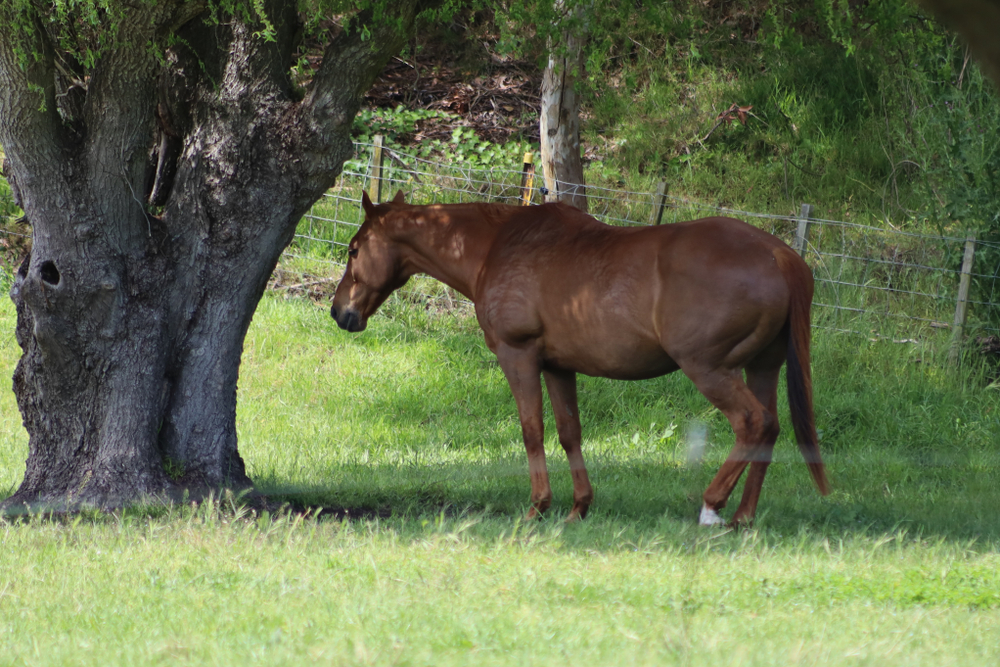
Anhidrosis can be an insidious change in a horse that has lived in Florida their whole lives, or it can be a sudden shift for a horse that has just moved here or is traveling to the sunshine state to compete or retire.
So, if your horse is the only one at the barn not sweating buckets in this Florida heat, pay attention! Here are some things to watch out for:
– Dry, clean coat after work or when coming in from daytime turnout
– Fast or labored breathing, especially when not working
– Flared nostrils
– Low energy or fatigue
– Slow cooling down after exercise
– Increased body temperature (especially serious if over 104°F)
– Seeking and staying in the shade, even if food is elsewhere
– Reduced eating or drinking
– Chronic cases: dry, itchy, or flaky skin, sometimes with hair loss
Whinny’s Wisdom: If you own horses, you absolutely must have a reliable thermometer to take their temperature. And you should practice with your horse so they are used to the process. It’s often the first thing you’ll be asked on the phone when you call about a sick horse.
If your horse is a non-sweater, what can you do? I can recommend some lovely lemming hotels in the arctic, but you may not be inclined to up and move just yet. Here are some other strategies.
Electrolyte Supplements
These can support normal sweating and overall health, especially in summer. One AC and Platinum Refresh are popular options. They provide essential electrolytes, amino acids, and vitamins. While the exact mechanism by which these supplements aid anhidrosis is not fully understood, their components are known to support bodily functions related to sweating. The success of these supplements can vary from horse to horse, likely due to individual differences in physiology and the underlying causes of anhidrosis.
Chinese Herbal Therapy and Acupuncture
At Springhill Equine, we’ve found these methods can be quite successful in some cases. Some of our docs’ very best summer success sweating stories have come from acupuncture patients of Dr. Carter and Dr. Yorke! We all need a little push to get to work sometimes, and it seems those equine sweat glands respond to a bit of needling!
Cooling Barns and Stalls
Keeping your barn and stalls cool is key. Use fans to circulate air and create a breeze. Ceiling fans, box fans (outdoor rated, of course!), and industrial fans all help. Misters or fogging systems can reduce heat through evaporation. Make sure the barn is well-ventilated by opening doors and windows. Using reflective or light-colored roofing materials can deflect sunlight and reduce heat absorption.
Providing Shade in Pastures
Provide ample shade in pastures. Trees offer natural shade, but if you don’t have enough, install shade structures or shelters. These can be pole barns, run-in sheds, or tarps stretched between posts. Ensure the shade is large enough for multiple horses to use without crowding, and place water sources nearby to encourage hydration.

Emergency Cooling Measures
It’s better to prevent overheating, but if it happens, here are some steps to follow:
– Move your horse to the shade.
– Hose them down with cool water or sponge them with ice water.
– Use portable fans.
– Offer cold water to drink.
– Take their temperature, heart rate, and respiratory rate.
– Call the vet!
Remember, you may not suffer from anhidrosis yourself, but you need to keep cool too! Drink water, wear sunscreen, stay in the shade, and take lots of breaks when you’re at the barn with your horses this summer. There’s a good human.
Until next week,
Whinny
P.S. Do you want to learn more about horses? Check out the podcast my humans produce! It’s called Straight from the Horse Doctor’s Mouth and you can check it out right here on my website, or by subscribing on Apple Podcasts, Spotify, or wherever you get your podcasts!
 Whinny’s Wisdoms is the official blog of Whinny the Clinic Mouse at Springhill Equine Veterinary Clinic in Newberry, Florida. If you liked this blog, please subscribe below, and share it with your friends on social media! For more information, please call us at (352) 472-1620, visit our website at SpringhillEquine.com, or follow us on Facebook!
Whinny’s Wisdoms is the official blog of Whinny the Clinic Mouse at Springhill Equine Veterinary Clinic in Newberry, Florida. If you liked this blog, please subscribe below, and share it with your friends on social media! For more information, please call us at (352) 472-1620, visit our website at SpringhillEquine.com, or follow us on Facebook!
[jetpack_subscription_form title="Subscribe to Whinny's Wisdoms"]



